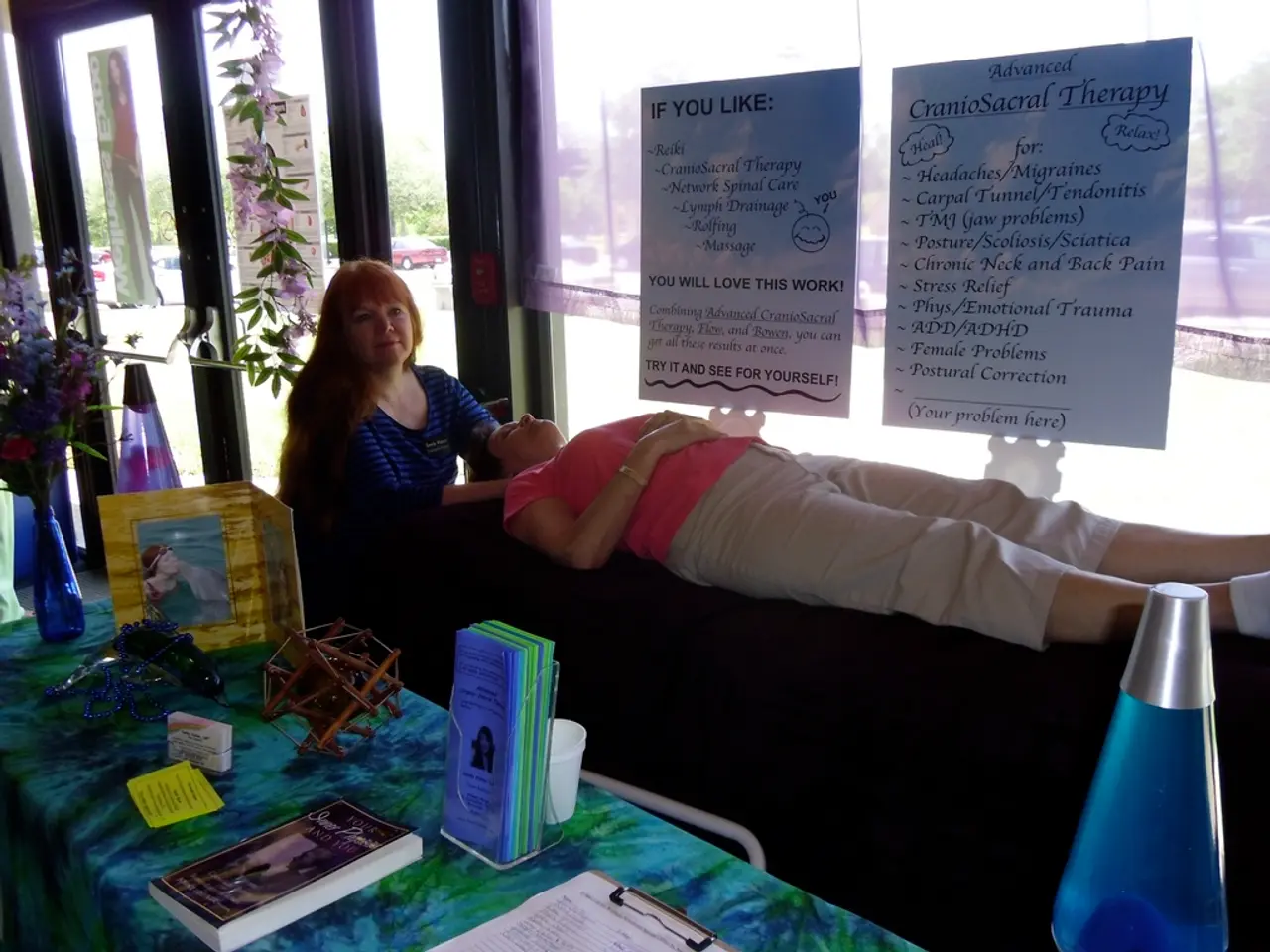Daily Emotional Regulation Practices: 9 Easy Techniques for Enhanced Personal Welfare
Emotional regulation is a crucial process that allows individuals to manage their emotional experiences effectively. By recognizing, managing, and responding to their feelings, people can enhance or diminish emotional responses, leading to a more balanced and fulfilling life.
Emotional regulation is integral to emotional well-being, and there are several daily exercises that can help. These practices promote resilience and a sense of control by increasing self-awareness, calming the nervous system, and helping individuals respond to emotions more deliberately rather than reacting impulsively.
One such exercise is mindfulness meditation, which fosters non-judgmental awareness of thoughts and feelings. By recognizing emotional triggers and reducing stress reactivity, mindfulness meditation enhances emotional regulation. Practicing deep breathing activates the parasympathetic nervous system, promoting a focused, centered state. Body scanning further strengthens the connection between mind and body, helping release tension and increase emotional insight. Gentle movement practices, such as yoga or walking, engage rhythmic physical activity that soothes the nervous system and helps maintain a balanced state. Expressive writing externalizes thoughts, aiding emotional processing and validation.
Cognitive restructuring, writing and journaling, positive self-talk, emotion labeling, and a daily gratitude practice are other effective exercises for emotional regulation. Cognitive restructuring involves challenging and altering negative thoughts, leading to a more constructive mindset. Writing and journaling offer valuable outlets for self-expression, improving emotional clarity and promoting self-awareness. Positive self-talk encourages individuals to engage in affirming dialogues with themselves, building confidence and decreasing feelings of inadequacy. Emotion labeling involves identifying and naming emotions as they arise, promoting emotional awareness and helping individuals gain clarity about their feelings. A daily gratitude practice shifts focus from negative emotions to positive thoughts, fostering a more optimistic outlook.
Progressive relaxation techniques and muscle relaxation exercises help individuals become more aware of physical tension and promote relaxation, leading to better emotional regulation. These techniques involve systematically tensing and relaxing different muscle groups throughout the body, promoting relaxation and emotional regulation.
Guided imagery encourages relaxation by visualizing peaceful and serene settings, reducing anxiety and promoting emotional well-being. Breathing techniques serve as a powerful tool for emotional regulation, helping to stabilize the body's response to stress and promote relaxation.
Emotional regulation is key to fostering growth in all executive function skills, as it allows individuals to focus on other things when their emotions are managed effectively. Regular practice of these exercises widens the "window of tolerance"—the optimal zone of emotional arousal where one can function effectively. Consistency, even with short daily sessions, is key to creating lasting benefits in emotional regulation and fostering a greater sense of control over feelings.
- Women seeking personal growth through education and self-development may find these exercises beneficial for emotional regulation, which is essential for effective decision-making and productivity.
- Incorporating fitness-and-exercise routines like yoga and walking into daily life can support emotional regulation, offering a healthy balance of physical activity and mindfulness.
- Science highlights the positive impact of healthy nutrition on mental-health and overall well-being, with well-balanced meals aiding emotional regulation and supporting learning.
- Journaling, as part of the emotional regulation process, can help men and women alike improve their focus, allowing them to navigate complex issues in the realm of health-and-wellness with clarity.
- Through practices like progressive muscle relaxation, individuals can develop a greater awareness of their emotional states and make more intentional decisions, enhancing their executive function skills.
- Mindset plays a crucial role in emotional regulation, as positive self-talk can help cultivate resilience, foster a sense of control, and diminish anxiety.
- Emotional regulation skills learned through exercise, such as mindfulness meditation and gentle movement practices, can be effectively applied within the context of a demanding executive position, helping improve focus and reduce stress.
- By cultivating a consistent practice of emotional regulation exercises, women can gain valuable insights into emotional responses, supporting their well-being and self-development.
- In the fast-paced world of education and self-development, emotional regulation skills are integral to managing anxiety, making informed decisions, and ensuring sustained focus on personal and professional growth.




